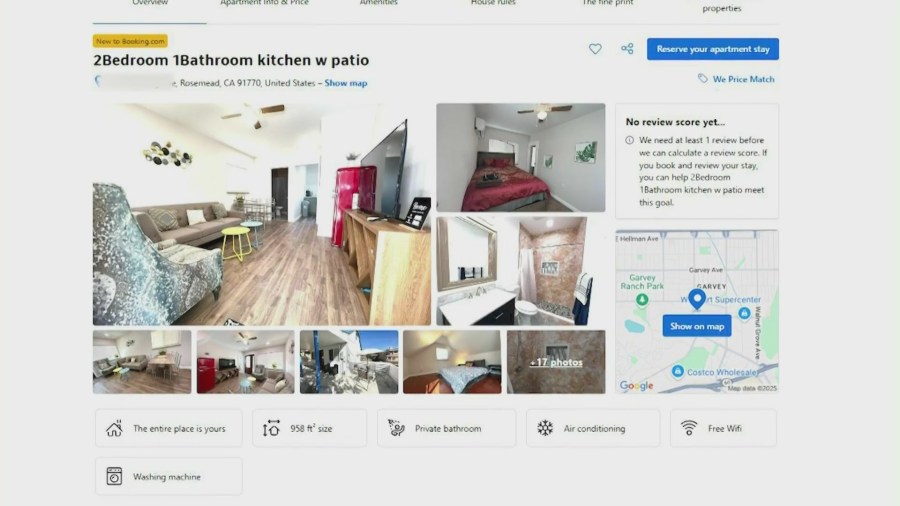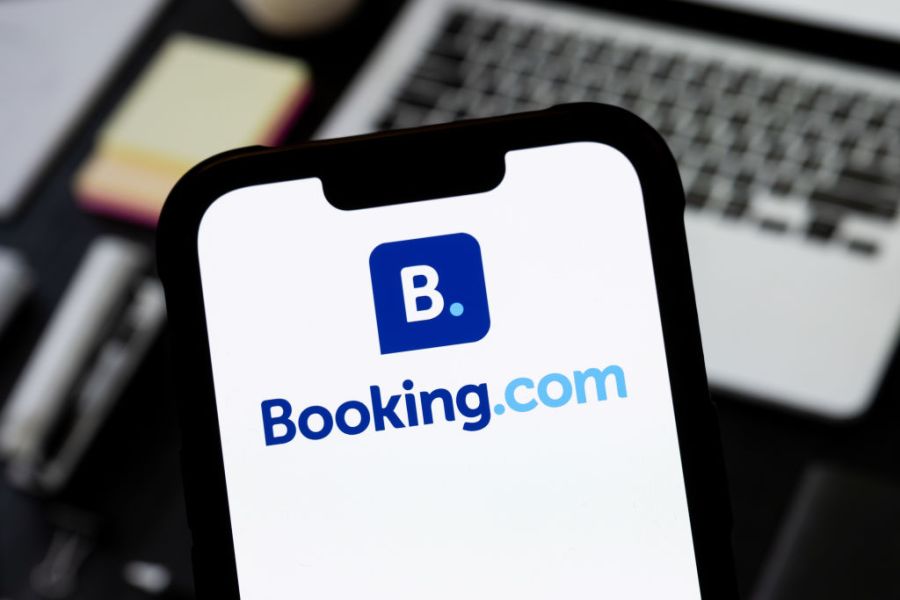Rosemead woman’s home posted on fake rental scam listing, bringing strangers to her front door
A resident of Rosemead mentioned that people keep coming to her doorstep unexpectedly because a fraudster posted her house as available for rent on a well-known travel website.
Alexis Cavish mentioned that her residence appeared in a fraudulent rental posting on Booking.com. Despite the accurate address, the images featured in the ad did not depict her property.
We discovered that our house was listed on Booking.com, even though we aren’t renting it out through Booking.com,” she explained. “As a result, several people showed up at our doorstep believing they had booked our place.
Cavish stated that not only has she never leased out her house, but she also doesn’t have a profile on Booking.com.
In the past 24 hours, though, two groups of unfamiliar people turned up at her doorstep, presenting her with email confirmations indicating they had reserved her house for a brief stay via the site. She had no choice but to refuse them entry.
Fortunately, until now, those who have arrived have been quite pleasant,” Cavish stated. “However, these are strangers showing up at a home with children and a play area, which makes me uncomfortable as they come onto my property.
Her house was advertised by the fraudster at almost $400 per night. Cavish mentioned she is amazed about how such an error could have occurred.
I’m feeling exasperated since the company isn’t apparently putting in the necessary effort,” she commented. “Shouldn’t the owner be required to establish proof of ownership prior to charging individuals for accommodation?
David Lazarus, KTLA’s consumer advocate, noted that such rental scams are growing more common.
“It’s such a prevalent fraud that it has a designation – short-term rental scams – and it frequently occurs on platforms like Airbnb and Booking.com,” Lazarus pointed out.
Frequently, numerous rental or vacation websites use automated listing processes, implying that no human beings are reviewing or validating these listings.
He mentioned that the most secure approach when leasing accommodation via the internet is to guarantee that every transaction is conducted directly on the platform rather than using an external payment application.
“Stay on the site,” Lazarus said. “In terms of any payment, any communication, don’t leave the platform. So, if the listing says they want you to pay with Zelle or Venmo or some other digital payment plan, and especially if they ask for crypto, walk away.”
Lazarus mentioned an additional method for safeguarding oneself is to look up the property’s address on Google Maps once you have booked it. This allows you to verify whether the location corresponds accurately with the pictures and details presented in the rental listing.
Copyright 2025 Nexstar Media, Inc. All rights reserved. This content must not be republished, distributed, broadcasted, or rewritten without permission.

